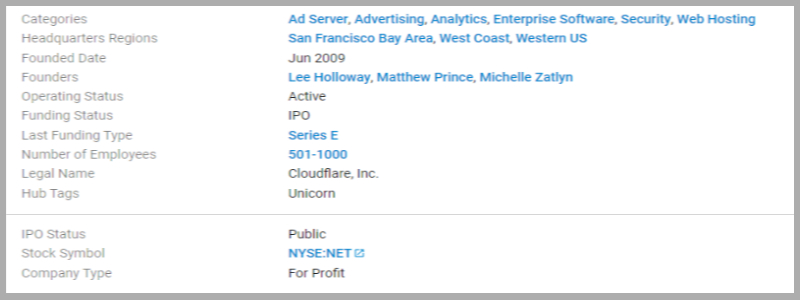Job Interview Preparation is the one area where candidates spend the least amount of time. Candidates will often spend days or weeks perfecting their CV, contacting their referrals, using their network, however, when the job interview comes around, spend less than a few minutes preparing for it.
Candidates need to realize their CV is just the start and only permits them to enter the interview room. Once you've made it into the interview room, the real decisions are made.
How To Prepare For Your Next Job Interview
Hiring manager and recruiters are well-versed to interviewing candidates and can easily tell the difference between those that have prepared and those that have not.
Preparation can be split into seven different sections as shown below. While some parts might be obvious, it's essential that you do your homework to assure yourself of a successful job interview.
- Creating the right first impression
- Building rapport with the interviewer
- Job Interview Body Language
- Learning about the company
- Answering job interview questions correctly
- Asking relevant questions to show that you're interested
- Standing out from the crowd after the interview has finished
Creating The Right First Impression

Dressing for a job interview should be simple, but it always amazes me how many candidates turn up looking a mess. According to TheLadders.com, 37% of hiring managers, say they have decided against hiring an applicant because of the way they dressed. There is no excuse to not looking smart and professional for every interview that you attend.
Dressing For A Job Interview As A Man
Dressing For a Job Interview As a Women
Building Rapport During Your Interview
“People BUY People NOT Products” is an old sales technique that can be very useful in the world of job interviewing. The idea is that you think of yourself as a person rather than a product. If your interviewer likes you as a person, you have more chance of being successful.
The easiest way for your interviewer to like you is to build rapport. Five-to-Ten minutes of chit-chat before your interview begins will make sure your interviewer likes you and makes for a much easier job interview.
Chit-Chat is very easy if your interviewer has a good personality, however often at this stage of the hiring process, a hiring manager does not care and will leave it to you to make an effort to get the conversation going.
It's vital that you do the research beforehand on topics to talk about and that you ask open-ended questions to encourage the interviewer into a conversation.
Typically research falls onto two fronts as shown below;
- Company Preparation – See if you can find out some current issues or problems with the company that you could use as an easy discussion tool. Use websites such as Bloomberg, Reuters or The Financial Times.
- Interviewer Preparation – Use professional social platforms such as LinkedIn to see if you can find out as much information as you can find about them. Maybe you have a mutual friend or have worked at the same company in the past, both of which are natural conversations to have.
Interview Body Language
What's the best way to make a complete mess of your interview? You get your body language. It's often said that less than 10% of what we say comes out of our mouth. The rest comes from factors such as how we speak, how we sit and what we look like. Slouch in your chair, and you look bored, cross your arms, and you will look defensive, while looking at the table shows that you lack confidence.
Body language is not something you need to spend hours mastering, but it's good to know the basic's and what to look out for, so you don't make a mess of your interview. Remember, positive body language comes from confidence which you can only do if you are prepared for your job interview and therefore able to show off your skills.
Below are some common points to help you get your body language right for your next interview.
- Leaving Home - Your job interview starts the minutes you leave home. You never know who's watching. Over the years, I have met many candidates on the train or doing their tie around the corner from the office.
- Don’t be Late – It’s a sure way to get the nerves going which is the last thing you need and shows a lack of maturity and preparation.
- Reception - Receptionist do report what they see in the waiting room so don't fall into the trap of laying around listening to music.
- First Impressions Count - Stand up as the interviewer enters the room and provide a firm handshake with good eye contact.
- Smile and Look Happy – however, watch out for making that silly joke to get a laugh. Often you'll be the only person laughing.
- Watch out for Your Hand Movements – Clasp your hands together on the desk if you’re getting nervous.
- No crazy Arm Movements – It's okay to make a point using your hands, but you want the interviewers to focus on what comes out of your mouth, not on your hand gestures
- Watch your Head Movements – Nodding while your interviewer is speaking means that you agree with what they are saying while tilting your head to the side will make you come across friendly and open.
- How you're Sitting – Sitting up-right but relaxed in your chair gives the impression of confidence, while slouched in your chair gives that, "I am too good for this job" look.
- How do you Sound – to convey confidence and professionalism make sure that you speak in a precise and controlled manner. Monotone makes you come across boring while exaggeration could mean that you come across childish and emotional.
- Watch out for your Eye Contact – otherwise, you could come across looking insecure.
Company Preparation

During my 20 years as a Head Hunter, it still amazes me how many people don't bother to learn anything about the company that they're interviewing at. Accept it; you're going to be asked the question, "What do you know about this company." Hiring Managers and Recruiters always want to know what you know about their company, so you need to prepare a good answer to this question.
I work for a Global Recruiting Company, however when candidates apply for jobs to join my team, often the only thing they can tell me about my company is that its an "international recruitment company."
Honestly, this does not impress me and sets the tone for the rest of the interview. A bad answer here shows me that you could not be bothered to do any preparation and probably we're wasting our time.
It's not hard to construct a one-minute presentation about the company you're interviewing at and below should give you some pointers to help you. You need to find out the following information as a minimum:
Company Information:
- What does the company do? How big is it? How many employees? Where else to they have offices?
- Do they own other companies or Brands?
- How do they make money? What services of Products do they have?
- How successful are they? Has there been any news stories?
How do you Find this Information:
- Company Website
- Related Websites - PRNewswire, Bloomberg, Reuters, Google,
- Social Media - Linkedin, Facebook, Twitter, Hoovers,Vault, Glassdoor and Careerbliss
- Professional Associations, Newspapers, Magazines, Trade Journals.
Interview Questions That You Will Be Asked

During your job interview, it's guaranteed that you're going to be asked many interview questions that will directly influence whether you get the job or not. Answering interview questions is not rocket science, but it's important to remember two key facts:
Answer The Question
Make sure that you answer the interviewers question. It's okay to use examples within your answer, but make sure within the first few sentences you have answered their question.
The biggest complaint that you will get from hiring managers is that the candidate did not answer the question that was being asked and tried to answer every possible question within their single answer.
Hiring Managers Want the Truth, but You Can Say Too Much
Yes, I want the truth, but often the real truth will get you in trouble. A great example of this is the answer to the question, why did you leave your job?
We all know, there're three reasons why a candidate leaves there job. They don't like their boss, they're bored, or they want to be paid more.
- Telling the hiring manager how badly your boss treated you, only says that you’re a complainer who is going to cause them problems.
- Telling the hiring manager how bored you are in your job, only says that you'll likely be bored in this job after a year and leave with all the time and effort that I have invested in you going elsewhere.
- Telling the hiring manager you want be to paid more, only says that you're going to leave when a better job with more money comes along.
All three reasons maybe the truth, but neither will get you the job.
Please Prepare Answers to These Three Questions
Below are three job interview questions that you're guaranteed to be asked at your next job interview. If you don’t prepare any other answers to interview questions, make sure that you have a good answer to these three.
Tell Me About Yourself
After your interview has started and you've had a few minutes of chit-chat, you are likely to be asked the question "tell me about yourself." Why? This is a natural ice-breaker that interviewers use to find out a large amount of information in a short period. The perfect answer to this question should be a short two-to-three minute presentation of your career and key achievements.
My advice is to prepare a short presentation about yourself, the highlights of your career, your achievements and finish up with a sensible question, such as, "would you like me to go into further details about any specific part of my career."
Describe Your Experience
Before you're offered the position, the hiring manager will want to find out the status of your knowledge and how much help they're going to need to give you to get you up to speed. Ultimately, hiring managers are looking for people that will make them look good in front of their manager by taking a portion of their workload and doing a good job.
When a candidate makes a mess of their job interview, it's typically because they have fallen into two key areas. Firstly they've not answered the question being asked, and secondly, they have bent the truth and use words such as "we did" or "we achieved."
Hiring managers want to know what you personally were responsible for and what your personal achievements were. As a final point when answering interview questions, I would always recommend that you use examples to back up your accomplishments.
If you don't know the answer to a question, don't try and make something up. Hiring managers will see straight through this. However, they will also appreciate you trying to answer the question as long as you're honest. "I don't know the answer, but an educated guess would suggest that....", could be a great answer to a question where you don't know the answer.
Why Did You Leave Your Last Job? or Why Do You Want To Leave Your Job?
Every interviewer will want to know why you're leaving your role or why you have already left your job. The question gives hiring managers a very clear look at your values and what you're like as a person. Can they count on you to perform or are you just going to leave when a better opportunity comes along.
It's much easier to answer this question when you already have a job. As a result, it's highly recommended that you find a new job before you resign from your old job.
- If You Want To Leave Your Job - I would always recommend that you remain positive but explain that you need a new challenge. If you focus on what you've learned, your achievements and personal developments while mentioning that you need a new challenge, you're telling the interviewer that they can count on you to get results.
- If You Have Already Left - You're in for a much tougher time as hiring managers and recruiters will dig much deeper to find out the real truth. Everyone fears that you've been sacked because you cannot do your job correctly. My advice in this situation is to remain calm, admit your mistakes, tell the interviewer what you've learned from your mistakes and do not blame or speak badly of other people.
Questions to Ask at the End of Your Interview
You must ask questions at the end of your interview to show that you’re interested in the role. There is no possible way to find out everything that you need to know from a one-hour interview and therefore by not asking questions, you're showing that you're not interested in the company, or worse still that your arrogant and think that you know everything.
Generally, candidates are nervous as they enter the interview room and by the time it comes for the candidate to ask questions, their mind is blank, and they cannot think of even the simplest question to ask. It's imperative that you prepare a few questions before your interview to show that you're a balanced person who can think for themselves.
Below are eight great questions to ask at your next job interview.
- Is there anything else that I can explain for you in more detail?
- Could you describe a typical day/week in this position?
- What has the current employee of this position found difficult in this role?
- What are the priorities for the first three months?
- How do you this role developing over the next three years?
- How to you see the company developing of the next three years?
- What is the next step in the interview process?
- Is there any reason that you would not hire me?
After Your Job Interview
Remember, just because you've finished your job interview does not mean the employer will stop looking for candidates. Even if you're the perfect candidate, they will look for other candidates so that they don't have to start the whole process again if you don't accept the offer.
The first thing that you need to do after the job interview is to think about how the interview went and work out in your mind if it went well or if it went badly.
To increase your chances of being successful and get the job offer you need to make sure that you keep the hiring managers mind on you and not other candidates.
Send a "thank you email or note" - My advice is to wait a day or so, and then send a quick email to the interviewer. This is a great way to thank them for their time, and for you to get yourself back in the interviewer's mind. It's also polite.
One point, don't harass the hiring manager with follow up emails and phone calls. If they tell you a decision will be made in two weeks, there is no point in asking for news after a couple of days. It only shows that you're desperate and probably not the type of candidate they want to hire.
If you get rejected, don't burn your bridges. Just because you've been turned down for one role, does not mean there will not be other opportunities in the future. If you act like a child, the door will close forever.
Final Thoughts
99% of the time, candidates feel nervous about their job interview because they have not done any preparation. If you have completed the above, then really you have nothing to worry about and should not be nervous.
The day before your job interview gives you some time to put the finishing touches to your job interview preparation. Read the job description a few times to familiarize yourself with the responsibilities and how your experience matches.
When the interviewer walks into the room, stand-up, smile and greet the interviewer with a firm handshake. You have prepared to the best of your ability, be yourself and you will be fine.
Nick Jones
Latest posts by Nick Jones (see all)
- What Job Should I Do? It Depends on Whether You’re An Introvert Or An Extrovert - November 17, 2021
- Ten Ways to Unplug and Recharge During The Holiday Season - November 3, 2021
- 10 Jobs for Teenagers to Earn Extra Money - October 13, 2021











